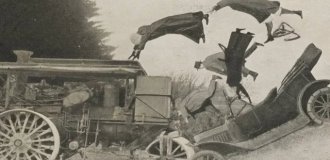About the life and work of the writer. 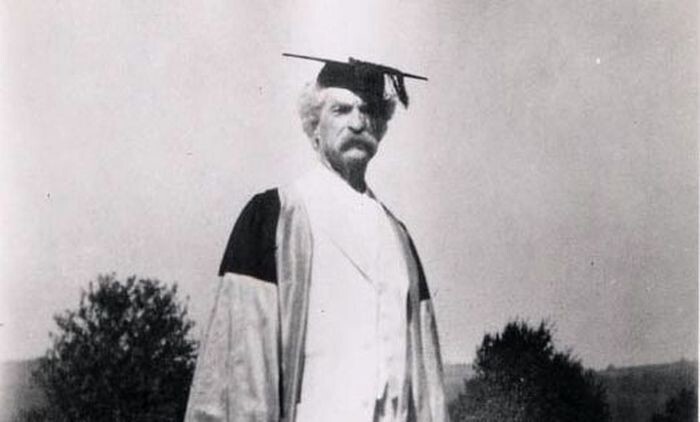
Rumors about my death
greatly exaggerated.
Mark Twain
When we hear the name Mark Twain, what comes to mind first? Of course, the immortal Tom Sawyer and Huckleberry Finn, whose adventures have been followed by children all over the world for more than a century. And in the middle of the 19th century, the cry “Mark Twain” evoked completely different associations. “Mark two” was what the phrase meant, and it meant two fathoms, that is, a depth sufficient for the largest river vessels to pass through.
Young Samuel Clemens, who got a job as an apprentice to a pilot, did not take such a pseudonym for himself by chance. After all, that's what people shouted all over Mississippi. Great advertising, isn't it?
Well, for science fiction readers, Mark Twain became a pilot who showed the route along which numerous captains have sailed more than once since then...
CHILDHOOD THAT WILL NOT BE RETURNED
They say that in order for a writer to touch our hearts, he should “see the world”, “smell gunpowder.” Samuel Clemens more than fulfilled both conditions before he put pen to paper.
His father was one of those who tried to catch luck by the tail at the beginning of the 19th century. John Marshall Clemens changed professions and cities, was a factory worker, a lawyer, a practicing lawyer, a shopkeeper, an artisan, a justice of the peace, took part in a railroad construction project, raised funds for the organization of the Salt River Navigation Company, developed plans for creating a highway... Unsuccessfully. The Clemens moved from state to state, and illusory happiness seemed to precede them by a month, a day, an hour... 
Town of Hannibal: the house where Twain grew up.
Samuel Langhorne Clemens was the third of four surviving children of John and Jane; he was born on November 30, 1835 in a town with the sonorous name of Florida, but did not remember it at all. When Samuel was four years old, the family moved to Hannibal, Missouri. There, on the banks of the great Mississippi, Sam spent his childhood. Later, Hannibal will appear more than once in the works of Mark Twain - under his own name or under “creative pseudonyms”: for example, in “The Adventures of Tom Sawyer” - as St. Petersburg, or rather, St. Petersburg.
A strange, paradoxical city. The city where the river routes of ships traveling along the Mississippi converged. Where it smelled of carnage and garbage. Where slave traders lived, swindlers of all stripes and naive projectors who believed in a better life.
Twain remembered it exactly like this: full of contradictions, but still the city of his childhood. Here he frolicked with the boys, here he ran to meet incoming ships, skipped school, swam across the Mississippi, hunted wild birds... One of Sam's friends - Tom Blankenship - later became the prototype of the famous Huck Finn.
Returning years later to his hometown, Twain will be surprised at how petty and worthless he had become. But for now, the disappointments of adult life lay ahead, and young Sam Clemens was simply glad that he was who he was. A rare opportunity for someone who will have to adapt to the expectations of others for most of their life.
REPORTER, PIlot, DESERTER...
Sam's older brother, Orion Clemens, was an incorrigible projector and a hopeless loser like their father. In 1850, Orion started publishing the Western Union newspaper. Fourteen-year-old Sam, who by that time had worked for a couple of years as an apprentice typesetter at the Missouri Courier weekly, began writing various kinds of notes for his brother.
This was the heyday of newspaper humor - rough, “folk”, often extremely undemanding. Jokes like “full house” jokes are always in favor with the general reader. It was easier with copyright back then, and a variety of publications could reprint successful humoresques without the author’s permission. 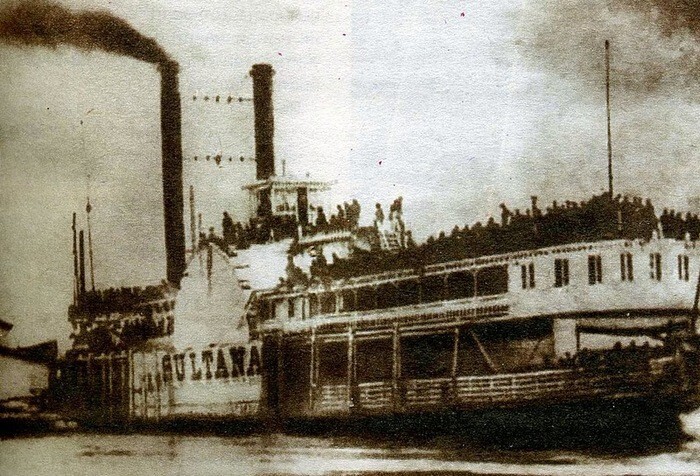
Steamboat on the Mississippi (for such Twain was a pilot).
Samuel Clemens' early attempts to write are of interest, perhaps, primarily to researchers of his work or historians of journalism. But they already display several features that became Mark Twain’s calling card. The ability to put on the mask of a simpleton storyteller. Using the grotesque to enhance the comic effect. And - what is most important for us - bringing this or that situation to the limit with the help of a fantastic technique.
Before becoming famous, Samuel Clemens went through a long and difficult journey. At the age of eighteen he left Hannibal and wandered around the country for four years. Sam is veryI was afraid of repeating the fate of my then deceased father. He wanted to succeed at any cost. He worked as a typesetter, wrote notes, humoresques, letters (there was such a genre in those years - something akin to reports and travel essays). 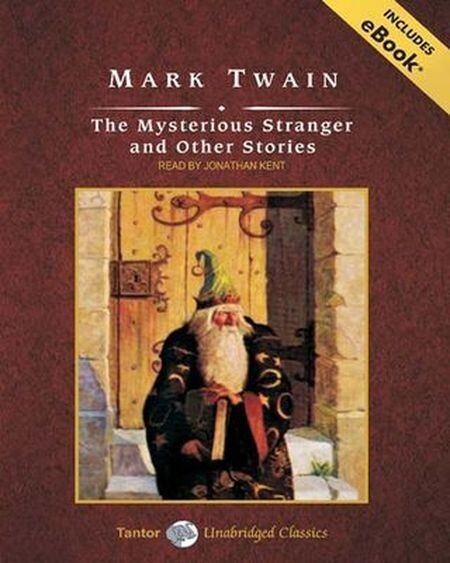
In April 1857, Clemens decides to go to South America. However, along the way he meets the pilot Horace Bixby and changes his mind. Now Samuel Clemens wants to study piloting. It's not that easy - you need to know the Mississippi like the back of your hand: what it is like at night and during the day, while going down and up the river. Bixby agreed to take Clemens as a student - and for a whole year he mastered the intricacies of pilotage science.
It was an alarming time; war was about to break out between North and South. Until its very beginning, Clemens drove steamboats on the Mississippi, while simultaneously sending materials to various newspapers. Four years that he will remember with sadness: a glorious time when Samuel was not dependent on anyone. The last years of the "golden age" of Mississippi pilots. They ended as soon as the war reached the great river. 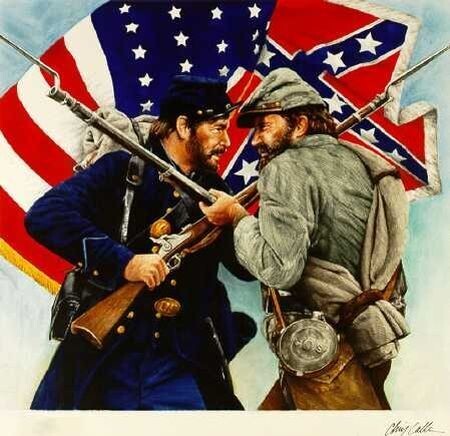
Sam decided not to take part in the fratricidal war.
A week after the start of the war, Clemens returns to Hannibal. The relatives, however, had long since left there. Clemens takes the side of the southerners and serves for two weeks as part of an irregular unit. At the first rumors of an offensive by the northerners, the militias begin to slowly “make their moves.” Clemens, sick with furunculosis, lags behind his family and hides on a farm with friends.
As a result, Samuel finds himself between two fires: a deserter in the eyes of some, a traitor in the eyes of others. And it’s unclear where to go...
IN SEARCH OF A GOLD MINE
Salvation came from his older brother - the same one in whose newspaper Samuel regularly wrote various kinds of notes. Orion received the position of secretary of the territory (future state) of Nevada. He took Sam as his assistant - and the brothers set off on another journey for illusory luck. 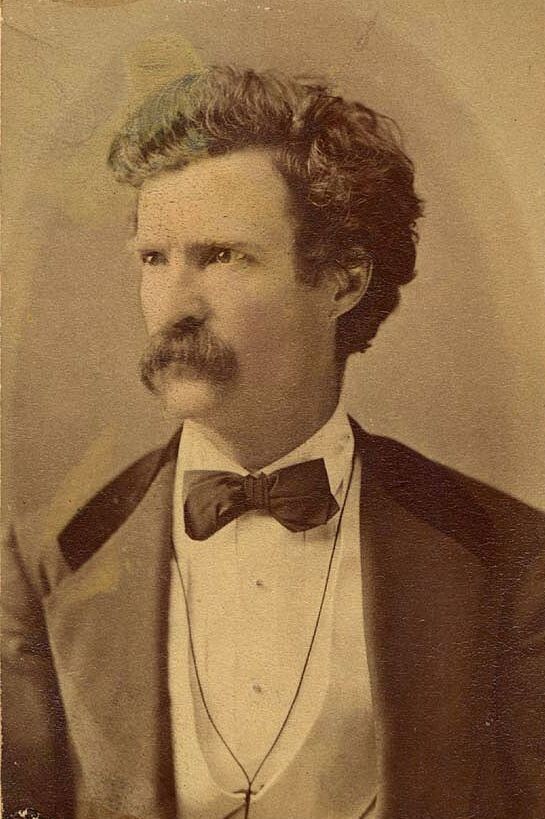
Mark Twain - journalist (1868).
Nevada in those years was considered a kind of analogue of California. A few years before the Clemens arrived, silver and gold were found there. Even the civil war did not prevent the surge of the “gold rush”. She did not bypass Samuel either. Having bought shares in various areas, the younger Clemens did not wait for luck with folded arms. In a company of three people, he travels to Humbolt, an area where Indians still live. From January to August 1862, Sam worked as a prospector. He saw a lot of gold and silver. But, according to his own words, he never held in his hands a single bar that belonged to him personally.
There is no money - and again you have to put pen to paper. At the Territorial Enterprise newspaper in Virginia City, one of the employees was planning a trip to the Atlantic Coast. The vacant seat was taken by Clemens, who by that time was so poor that he traveled to Virginia City on foot.
And again - endless notes about thugs, theatrical performances, robberies, murders, meetings of the local Bible society, rising stock prices... Clemens did not like this work and therefore returned to humoresques with even greater pleasure. Some of his stories, written in a pseudoscientific style, were taken at face value and reprinted by other newspapers. The London Times, for example, seriously proposed to supply the British colonial troops with a device “invented” by Clemens to combat the heat.
It was in the Territorial Enterprise, in February 1863, that a note was published for the first time under the pseudonym “Mark Twain.” The use of pseudonyms was common in those days. Many journalists, especially humor writers, came up with a “mask” of a narrator - stupid, simple-minded, absurd - and wrote texts as if on his behalf. Often the average reader had no idea who was hiding under one pseudonym or another.
Meanwhile, Twain's articles began to gain popularity and were reprinted. He meets the famous Artemus Ward, or more precisely, the humorist Brown, who used such a pseudonym and often gave comic lectures. He came to Nevada for one of his lectures. Twain learned a lot from Brown-Ward, and giving such lectures for many years became first a favorite for the writer, then hated and painful, but one of the main sources of income. 
Connecticut Yankee is a pioneer of time travel.
Then, as now, the profession of a journalist was one of the most dangerous. Twain often wrote to his motherly sharp, offending certain wealthy people. He had to defend his case in paper duels on the pages of newspapers. Several times he accepted the challenge and the duels were quite real - however, it did not come to the exchange of shots.
He was looking for a gold mine in Nevada - and came across it, even if it was completely different from where he expected. A catchy pseudonym and professional work in newspaper humor turned out to be the first real step on the path to fame.
BURDEN OF CHOICE
Another challenge to a duel led to Twain having to flee Nevada. The authorities passed a law according to which even the challenge itself was punishable by imprisonment. Besides, frankly speaking, Twain was tired of it here - he, like his father, could not stay in one place for long.
In San Francisco, Clemens tries to combine gold prospecting with journalism. The first one turns out badly for him, the second one is getting better. In the winter of 1865, he heard one of the folk tales, which, in a revised form, brought him wide fame. It was a story about a man named Colman who bet that his trained frog could jump higher than any other. When Coleman left the room, his opponent fed the frog shot and thus won.
An ingenuous tale - but, told by Twain, it sparkled with new colors. First of all, thanks to the fictional narrator, a good-natured, simple-minded miner, who slowly leads the story, every now and then dwelling on minor, associatively emerging topics. “The Famous Jumping Frog from Calaveras” became Twain’s calling card for many years; he read it at his lectures and performances in many cities in the States. 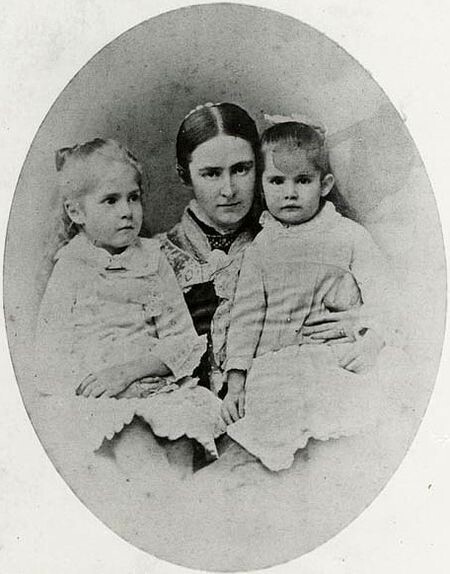
Olivia Clemens with daughters Susie and Clara (1878).
“Wit and humor,” wrote Twain, “if there is a difference between them, it is only in time - they are lightning and electric light. Both are clearly made of the same material, but wit is a bright, instantaneous and dangerous flash, while humor is naughty and enjoys plot twists.” Twain's first stories were largely humorous, based on a well-chosen manner of execution rather than content. They required appropriate skill when delivered from the stage; each one turned into a mini-performance. 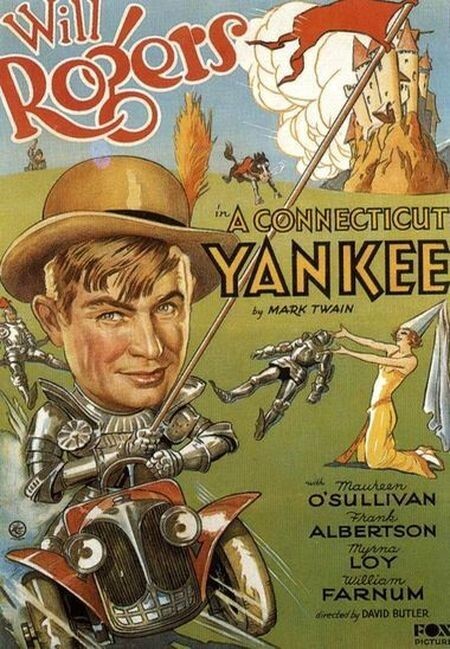
"Yankee" continued its journey on the silver screen.
At the same time, notes of social satire are increasingly heard in Twain’s work. He, having traveled and seen everyone, understood how imperfect man is, how much envy, anger, and stupidity there is in him.
It cannot be said that Twain was such an ideological fighter for the rights of people, that he always remained consistent in his views. Twain, like every living person, is not without weaknesses and contradictions. He defended the rights of the Chinese and blacks - but at the same time treated the Indians with disdain. He lamented that writers turn a blind eye to injustice and lawlessness, but he did not dare publish his most caustic works.
Having become a famous journalist, Twain first went on a trip to Hawaii, then on the Quaker City steamer on a tour of Europe and Palestine. The result of this tour were essays that later formed the book “Simps Abroad” (1869).
At Quaker City, Twain met the brother of his future wife Olivia Langdon. The daughter of a wealthy coal merchant hardly thought that some kind of pop clown and journalist would become her husband, but they got married and really sincerely loved each other all their lives. At the same time, marrying Olivia meant for Twain a series of concessions that had to be made. He had to provide his wife with a decent standard of living. Olivia henceforth became the first reader and chief censor of all his works; many of whom were sent to the legendary safe on the first floor precisely because of her verdict (Olivia was, unlike Twain, a very God-fearing person).
THE ACCIDENTAL FOUNDING FATHER
First of all, Twain is famous, of course, not as a journalist or satirist, but as a writer. From his pen came a lot of stories written on the topic of the day, and the fact that today they look just as fresh speaks, perhaps, not only about Twain’s talent, but also about ourselves. Twain more than once used science fiction to talk about modernity more clearly, clearly, and sharply. Dystopia, a parody of a mystical story, a science-fiction assumption were his working tools.
Twain never considered himself a science fiction writer; the lion's share of what he wrote was not science fiction. He used the techniques of the historical novel in “The Prince and the Pauper” (1882) and “Personal Memoirs of Joan of Arc by Sieur Louis de Comte, Her Page and Secretary” (1896), wrote about his personal experiences in “Walking onEurope" (1880), "Life on the Mississippi" (1883), "Along the Equator" (1897). More than once Twain resorted to biblical themes, but, again, these works cannot be called science fiction. On the other hand, “Captain Stormfield's Journey to Paradise” (1909) is quite a description of a fantastic quest with elements of satire and grotesque. And Letter from an Angel (1887, first published in 1946) is a small masterpiece of satirical fiction.
Twain developed the traditions of Swift and Raspe, and did it boldly and brightly. Another thing is that many of his works were sent to the safe for many years... He was interested in the successes of modern science, was friends with Nikola Tesla and used elements of science fiction in some of his stories. For example, in “From the London Times of 1904” (1898), Twain predicted the advent of television. In “A Deal with Satan” (1904) he discussed the nature and prospects of discoveries in physics.
But, of course, Mark Twain's most famous work of fiction is the novel A Connecticut Yankee in King Arthur's Court (1889). Six years before Wells’s “The Time Machine,” Twain writes about time travel: an ordinary contemporary of the then reader, an enterprising fellow from Connecticut, ends up at the court of King Arthur and begins to fully engage in what more than half a century later the Strugatsky brothers would call progressorism. Twain portrays the British of the 6th century quite accurately - not as Malory described them in Le Morte d'Arthur, but as historians talk about. In fact, with this novel, Twain marked the beginning of a whole trend in fiction, which in recent years has blossomed wildly: stories about “chronological misfits” who find themselves in another era and are trying to remake it in accordance with their own ideals. But if “Yankees...” is known and remembered, then another, no less interesting work by Twain remains known only to a narrow circle of fans.
HIS FAREWELL BOW
In the last years of his life, Twain took up a novel that he had long wanted to write. He started it twice and put it off both times, feeling that he could not choose the right key. The action was transferred either to medieval Austria or to contemporary Hannibal... Everything was bypassed. Finally, Twain chose Austria again, but in the 16th century, and the matter moved from a dead point.
A few decades later, on the other side of the world, another writer will start, and quit, and start again his latest novel in the same way. And he won’t finish it either; a version based on the drafts will be published. What would seem to be common between Mikhail Bulgakov and Mark Twain? Both of them, at the end of their lives, took up a novel about a visit to the world of Satan.
Twain wrote “The Mysterious Stranger” without regard to the public or the publisher - it was, in the author’s opinion, the Main Book of his life. 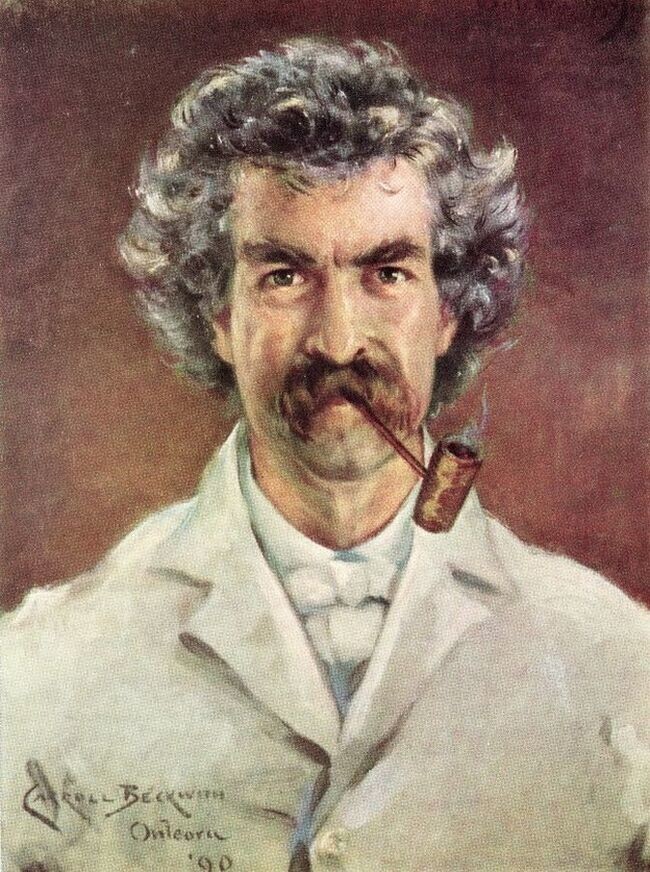
The many-faced Mark Twain: in the portrait of James Beckwitch,.. 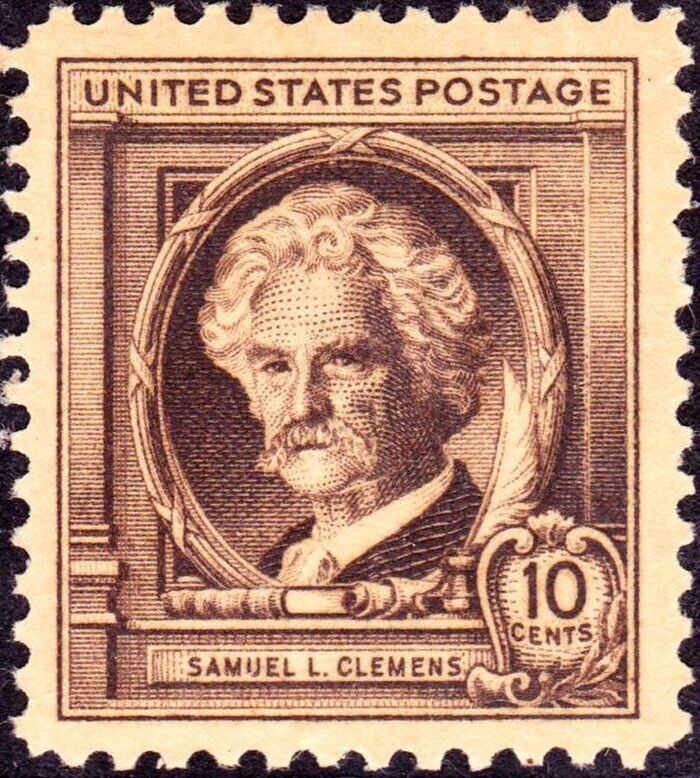
... stamp 1940,.. 
... in an animated feature film.
Boys from the Austrian town of Eseldorf one day meet a mysterious stranger in the forest who claims that he is the nephew of Lucifer himself. It’s hard not to believe him: Satan brings to life little men sculpted from clay, reads thoughts, and predicts future events. If he is not omnipotent, he is only one step away from it.
The guys are fascinated by Satan, who does not at all seek to harm people. As he himself admits, people for him are something insignificant and unimportant. If Satan helps someone, it is only on a whim, and he does it in a very peculiar way. Knowing how to discern all possible threads in the development of destinies, if the boys ask them to choose the “best” for a person, he chooses the one that will lead him to a faster death.
In The Mysterious Stranger, Twain formulated the principle of cause and effect. Any, even the most insignificant act can affect the further chain of events. The flapping of a butterfly's wing causes massive changes. And although the main thing in Twain’s story is not this at all, but philosophical, rather cruel reflections on the nature and essence of man, it is necessary to give him his due: long before Bradbury, the writer “invented” the so-called butterfly effect.
The ending of the story is unexpected. Satan’s farewell words affirm the unconditional solipsism, and perhaps even the despair of Twain, who never believed in the postulates of any religion and understood that he would soon die: “No God, no universe, no life, no humanity, no heaven, no hell. It's all just a dream, an intricate stupid dream. There is nothing but you. And you are just a thought, a wandering thought, an aimless thought, a homeless thought, lost in eternal space.”
ETERNAL PIlot
At the end of his life, Twain fully experienced the bitterness of loss. The publishing house he owned went bankrupt. Predeceased by daughter Susie, older brother Orion, wife, and youngest daughter Jean. He still did not dare to publish many of his works - perhaps out of respect for the memory of his wife: she probably would not have approved of them... 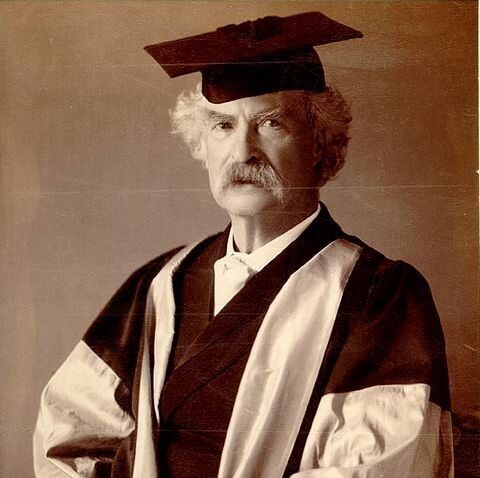
At sunset: honorary doctorate from Oxford... 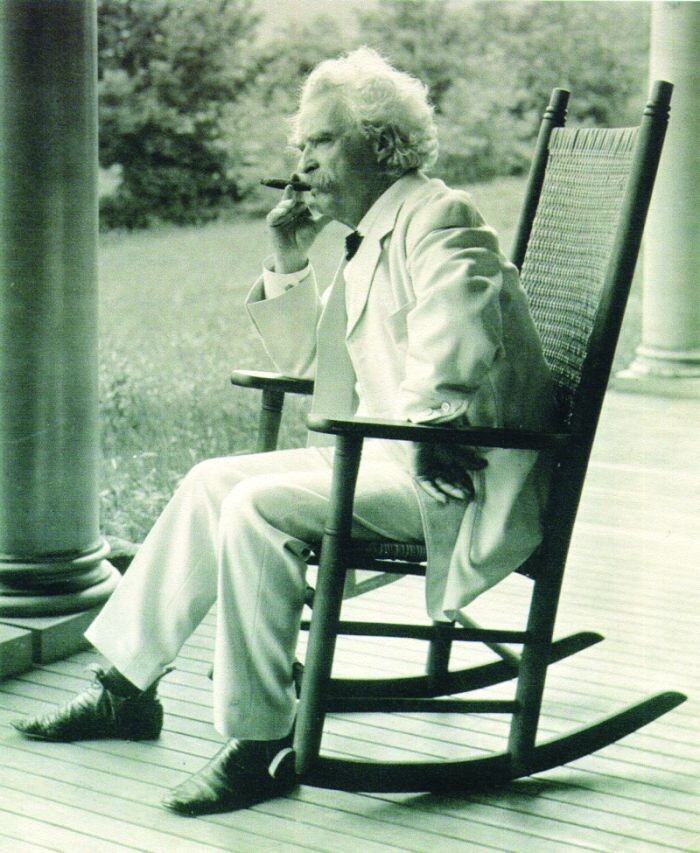
...and just a tired sage.
A series of disappointments affected the work of Mark Twain. In April 1910, he died of angina pectoris. A year before his death, Twain said that he was born at the same time as Halley's Comet arrived and would die when it arrived again. He was not mistaken in this. But, perhaps, following the writer, we will repeat the joke included in the epigraph of this article, with which Twain answered a journalist from the New York Journal when he was sent with the task of writing a note about Twain: if he dies in poverty - in 500 words, if he dies in poverty - in 1000 words.
Rumors about Twain's death are greatly exaggerated: the routes he designated are still busier than other highways. Unlike many founding fathers, who laid the foundation for one genre or another, but were of little value as writers, Twain is still read avidly. “The Adventures of Huckleberry Finn” is included in the golden fund of world literature; many feuilletons and stories are rightfully considered classics. Twain's books are filmed with enviable frequency in a variety of countries, they are translated into many languages.
Science fiction writers have not forgotten about Twain and his heroes: in 1971, Philip Farmer made Samuel Clemens one of the heroes of his epic “River World.” The circle is closed - and the eternal pilot once again stood at the helm...
FANTASTIC WORKS OF MARK TWAIN
Until now, some of Twain's stories have not been published in other languages, so the list is approximate and incomplete.
Novels
A Connecticut Yankee at King Arthur's Court, 1889
"The Mysterious Stranger" (1916)
Novels and stories
Cannibalism in the Cars (1868)
"The Petrified Man" (1870)
A Ghost Story (1870)
"A Medieval Romance" (1870)
"A Curious Pleasure Excursion" (1874)
“The Curious Republic of Gondour” (1875)
"The Facts Concerning the Recent Carnival of Crime in Connecticut, 1876"
The Loves of Alonzo Fitz Clarence and Rosannah Ethelton, 1878
The Stolen White Elephant, 1882
"A Curious Dream" (1888)
"Transmission of Thought at a Distance" (Mental Telegraphy, 1891)
“More on the transmission of thought at a distance” (Mental Telegraphy Again, 1895)
"From the London Times of 1904, 1898"
"The Five Boons of Life" (1902)
"Deal with Satan" (Sold to Satan, 1904)
“Three thousand years among the microbes” (3,000 Years Among the Microbes, 1905)
Captain Stormfield's Visit to Heaven, 1909
Add your comment
You might be interested in:



